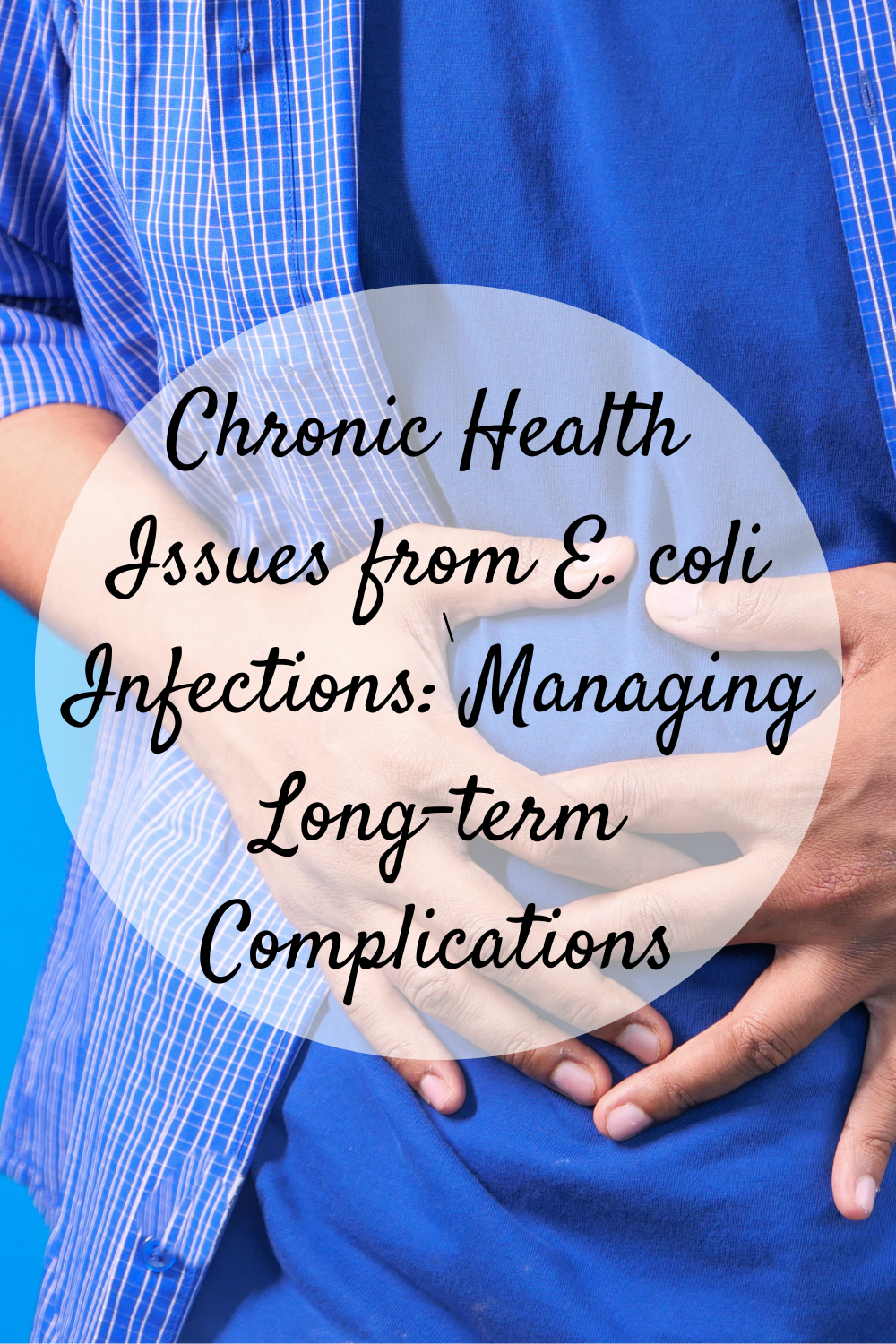

E. coli infections can lead to serious immediate health issues, but many people don’t realize that the impact can be long-lasting. For some, an E. coli infection can result in chronic health problems that require ongoing management. Understanding these potential complications and knowing how to manage them is crucial for maintaining quality of life after an infection.
Under certain circumstances, the aftermath of an E. coli infection can necessitate legal recourse to secure compensation for enduring health issues. Engaging with a law firm that specializes in E. coli lawsuits can be a crucial step for affected individuals, empowering them to understand and navigate their legal options, and ultimately, to secure the support they need.
One of the most severe complications of an E. coli infection is Hemolytic Uremic Syndrome (HUS). HUS primarily affects the kidneys and can lead to acute kidney failure, which may require dialysis or even a kidney transplant in severe cases. It occurs when the toxins produced by E. coli bacteria damage the small blood vessels in the kidneys.
Managing HUS involves regular monitoring of kidney function, maintaining a healthy diet, and possibly long-term medical treatments. Early diagnosis and intervention are key to improving outcomes. Patients with HUS need ongoing care from nephrologists to monitor their kidney health and manage any complications that arise.
Post-infectious Irritable Bowel Syndrome (IBS) is another long-term complication that can follow an E. coli infection. IBS is a disorder that affects the large intestine, causing symptoms such as cramping, abdominal pain, bloating, gas, and diarrhea or constipation. The condition can significantly impact daily life and requires careful management.
Treatment for post-infectious IBS often includes dietary changes, stress management, and medications to relieve symptoms. Patients may need to work with gastroenterologists to develop a personalized management plan that addresses their specific symptoms and improves their quality of life.
Chronic Kidney Disease (CKD) can develop as a result of severe E. coli infections, particularly in those who experience HUS. CKD is a long-term condition where the kidneys gradually lose function over time. This can lead to a build-up of waste products in the body, causing a range of health issues.
Managing CKD involves regular check-ups with healthcare providers, medications to control symptoms, and lifestyle changes such as maintaining a healthy diet and staying hydrated. In advanced stages, dialysis or a kidney transplant may be necessary. Ongoing monitoring and early intervention are crucial to slow the progression of CKD.
Reactive arthritis is an inflammatory condition that can develop after an E. coli infection. It typically affects the joints, eyes, and urinary tract, causing pain, swelling, and redness. The condition can be chronic and may require long-term treatment to manage symptoms.
Treatment for reactive arthritis includes nonsteroidal anti-inflammatory drugs (NSAIDs) to reduce pain and inflammation, physical therapy to maintain joint function, and in some cases, disease-modifying antirheumatic drugs (DMARDs). Regular follow-ups with a rheumatologist are important to monitor the condition and adjust treatment as needed.
Long-term gastrointestinal issues are common after an E. coli infection. These can include chronic diarrhea, abdominal pain, and malabsorption of nutrients, which can lead to weight loss and nutritional deficiencies. These issues can significantly impact a person’s quality of life and require ongoing management.
Treatment for chronic gastrointestinal issues often involves dietary modifications, such as avoiding certain foods that trigger symptoms and medications to manage pain and inflammation. Working with a gastroenterologist can help patients develop a comprehensive management plan to address these persistent symptoms.
The psychological impact of a severe E. coli infection can be profound. Survivors may experience significant mental health challenges as a result of their illness and the stress of dealing with long-term complications. These psychological effects can have a lasting impact on overall well-being and quality of life. Here are some key aspects to consider:
E. coli infections can sometimes lead to immune system complications, resulting in autoimmune disorders where the immune system mistakenly attacks the body’s own tissues. Conditions such as lupus or rheumatoid arthritis may develop, causing chronic inflammation and a range of debilitating symptoms.
Managing these complications requires regular monitoring by healthcare providers to track the progression of the autoimmune disorder. Treatment typically involves medications to suppress the immune system and reduce inflammation, along with lifestyle changes to support overall health. This may include a balanced diet, regular exercise, and stress management techniques.
Early diagnosis and intervention are crucial for effectively managing autoimmune conditions resulting from E. coli infections. By working closely with their healthcare team, patients can develop a comprehensive treatment plan to manage symptoms, prevent flare-ups, and maintain a good quality of life.
Follow-up care is essential for individuals who have experienced a severe E. coli infection. Regular check-ups with healthcare providers are necessary to monitor for any long-term complications and to manage ongoing symptoms. This care can help detect issues early and provide timely intervention.
Patients should work closely with their healthcare team to develop a comprehensive care plan that includes regular monitoring, medications, lifestyle changes, and support for both physical and mental health. Ongoing follow-up care is crucial to maintaining health and improving outcomes for those affected by E. coli infections.
A recent analysis by John Foy & Associates reveals a troubling trend in traffic fatalities…
Artificial intelligence (AI) technology has been praised by many for its ability to improve efficiency,…
SPLAT. Andrew’s knee struck the jagged mountain path. Blood—warm and red—spilled down his leg, weaving…
Selling car with finance needs throughout. Unfortunately, ignoring legal steps leads to problems later. Therefore,…
Capricornx has confirmed that its proprietary strategy engine sustained a verified win rate of 92.4%…
Verizon Customer Service 1-833-783-3017: How to Get Fast & Reliable Support When it comes to…
This website uses cookies.